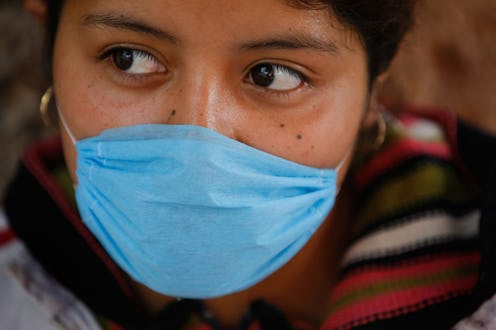News
CDC: Antibiotic Overuse Created 3 "Urgent" Germs
Because Oxford University's extinction theories weren't freaking us out enough, we've now got this to worry about.
Three strains of bacteria have become antibiotic-resistant and are posing "serious threats" to the health of the United States, said a landmark report by the Center of Disease Control Monday. Because Americans use a serious amount of antibiotics, "superbugs" have now developed that are immune to them. And the only way to backtrack is for the entire Unites States to cut way, way down on antibiotic use. "It's not too late," said the "Threat Report 2013" (yup, that's its real name), pretty ominously.
The report names 11 bugs that have been made worse by Americans' dependency on antibiotics. The top three strains are CRE, a hospital-prompted infection that kills nearly half of its 9,000 victims; gonorrhea, a STI that was once curable by antibiotics, but is now incurable in a third of cases; and clostridum difficile, which lives, thrives, and kills — 14,000 annually, to be exact — when too many antibiotics are used inside the body.
Antibiotics are used for both humans and animals, and the CDC recommends cutting way back on prescribing them. Every year, 23,000 deaths are caused by these antibiotic-resistant "superbugs," said the report, not to mention the two million non-fatal infections they cause inside of the United States. The agency also recommends taking extra measures to prevent these bugs in the first place, such as hand-washing, food-washing, and other basic anti-infection measures.
If these issues aren't tackled, more resistant infections will likely develop and proliferate: more infections will occur each year that Americans continue their high use of antibiotics, particularly when the use of them is premature. A CDC official recommended that families of those who are ill should bring up the issue with their doctors directly: "If you are not comfortable asking questions, force yourself anyway ... ask, 'What are you doing to make sure my mom doesn't get an antibiotic-resistant infection?'"
The answer, for some, is to provide more drugs to fill in the gaps where the older ones just don't work. But, said the CDC director, that isn't a feasible option: "We don't have new drugs about to come out of the pipeline. If and when we get new drugs, unless we do a better job of protecting them, we'll lose those, also."
The report is the first in its kind, suggesting that the CDC will amp up the pressure on healthcare authorities if they ignore their recommendations.
Happy Monday, everyone...
